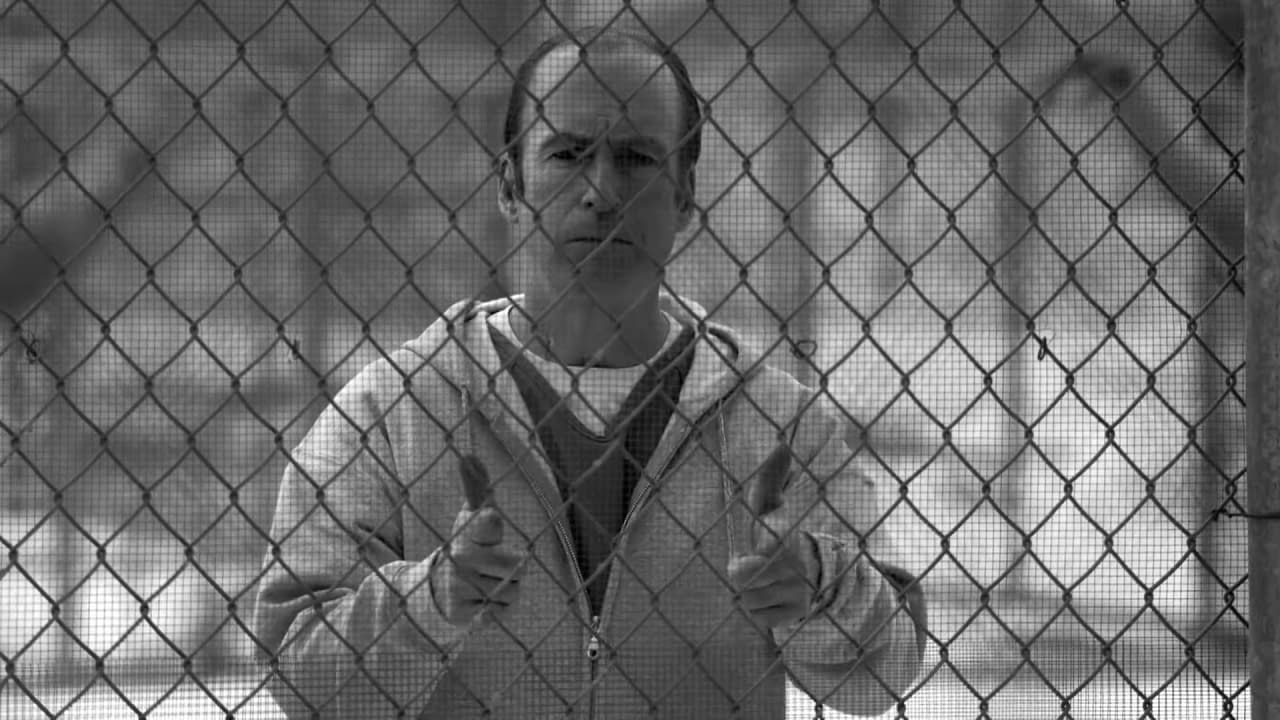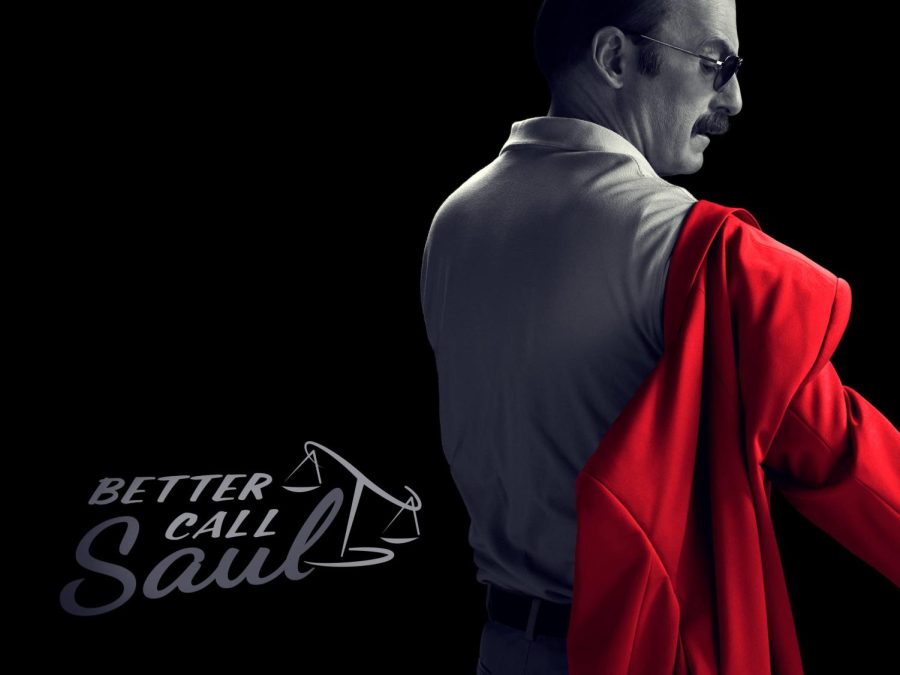Better Call Saul: The Epitome of Modern Cinematography (Significant Spoilers for Breaking Bad and BCS)
February 6, 2023
In the year 2013, a masterpiece that captivated the minds of millions across the world came to a grand conclusion, leaving witnesses with an overwhelming, paradoxical sense of content, yet emptiness. The masterpiece I speak of, of course, is no other than Breaking Bad. Participants of the half decade saga were full of questions: “Did Jesse escape?”, “What happened to Saul?”, “Is Huell still sitting on this couch?” So many questions, yet it seemed as though we wouldn’t be receiving any answers after such a finale. And so years would pass, some viewers were able to move on and were satiated by the conclusion of Breaking Bad, but the flames never died down for some.
After 2 years, in 2015, Better Call Saul, a prequel to Breaking Bad that would focus on Walter White’s “criminal” lawyer: Saul Goodman, released its very first episode on AMC. Many were pleasantly surprised by the additional lore in the breaking bad universe, but there were also many who thought that adding to the story would just sully the ending of Breaking Bad. Even when the show was first announced in 2013, before Breaking Bad even ended, there was controversy about it ruining the work of art Vince Gilligan created. Regardless, when Better Call Saul released, it was immediately evident that the tone of the entire show would be completely different from that of its predecessor. While Breaking Bad started off with a middle aged, overqualified chemistry teacher with cancer who became a meth kingpin and killed two people in the course of the first episode, Better Call Saul has a much slower start, introducing our main character: Jimmy McGill and his life as a simple lawyer. So viewers were intrigued, for better or for worse, for how this seemingly mundane show would turn out. However, that very same “boring” show would go on for six seasons and seven years, one season and two years longer than Breaking Bad, so let that speak for itself
Synopsis
Our show starts off with a flash forward after the events of Breaking Bad. Saul Goodman, who actively protected Walter White as his attorney as Walter slowly became consumed by his ego as Heisenberg, is now a fugitive going by the name: Gene Takovic. He’s now stuck as a manager of a Cinnabon in Omaha, Nebraska and spends every day doing the same mundane routine in self pity as a shell of his former self. He now spends his life in constant paranoia of getting caught, living in the past as he constantly watches tapes of his glory days as Saul Goodman. His future seems bleak and he seems fated to fade into obscurity.

Then time goes back six years to 2002, even further than the beginning of Breaking Bad, which would be the setting for Better Call Saul. Saul, real name: Jimmy McGill, is a humble lawyer who’s dedicated his life to helping out the “little guy.” However, his past is muddied, with many instances of scamming people with fake injuries and rigged bets in his hometown of Cicero, earning him the infamous nickname “Slipping Jimmy.” As such, he’s barely making it by, living and working in the back of a spa where he’s not even allowed to drink the free complimentary cucumber water. Moreover, he’s burdened with taking care of his older brother, Chuck McGill, who has a “medical condition” in which he is allergic to electricity, becoming physically pained when exposed to electricity, and must live indoors with no power. Chuck however, is significantly more successful than Jimmy, being the co-owner of a successful law firm, HHM, and a successful and well established attorney in Albuquerque. Jimmy changed his ways of the past to become an attorney like his older brother in hopes of being acknowledged by him, but Chuck doesn’t even so much as show an ounce of respect towards Jimmy, insulting him for earning his degree in an online school. This really is the stem of Jimmy’s motivations throughout the series, to establish himself as a respectable lawyer who fights for the people.

However, Jimmy descends further and further into the gray, as he cuts corners and involves himself with more and more shady people. Despite him being a lawyer, he resorts to cheap tricks such as gaslighting, false witnesses, and planting evidence. To advertise his law firm, he impersonates the CEO of his brother’s company and even stages him saving a man from falling to death just to make himself look like a saint. Moreover, he sells burner phones on his off time to people he knows are criminals and even gives them a discount for his law practice “just in case.” He even gets himself involved with the Mexican cartel, though by pure happenstance and on the wrong end at first when he tried to scam Tuco Salamanca, it was realized by the cartel that Jimmy’s persuasion skills and ability to make things go his way would be beneficial, causing them to maintain a close grip on him. Eventually, he gains the trust of one of the cartels top dogs: Lalo Salamanca, whom Jimmy eventually has to defend for the murder of an innocent man. With his actions getting progressively worse as he pushes away everyone he loves, he eventually goes down the road of becoming the criminal lawyer Saul Goodman: the man who protects Walter Whites multi-million dollar meth empire.
Why Is Better Call So Good?
Better Call Saul is an extremely engaging show for its storytelling, clever use of color, camera shots, and suspenseful moments, but it really boils down to one thing: the characters. Many characters in a show serve no particular purpose or individualism, existing solely to help the character grow while they remain stagnant throughout the series. Simple plot devices that don’t matter in the grand scheme of things. What Better Call Saul does, however, is carefully and cleverly implement characters who have specific purposes in helping the character grow and receive their own growth. Because of this, the viewers become invested in these characters, wanting to know what happens to them because the creators made us care about these people. Jimmy meets with a complete whirlwind of characters, many who try to stop him from his greed, those who simply wish to insult him, and those who want to use him for their gain. These characters who get involved with Jimmy either enter, or already a part of a dangerous world, and we witness throughout the show how they change after meeting Jimmy. That’s why the characters of Better Call Saul are Undoubtedly the most vital part of the show and are worth delving deeper into.
Mike Ehrmantraut: An Old Man In A World Where Men Die Young
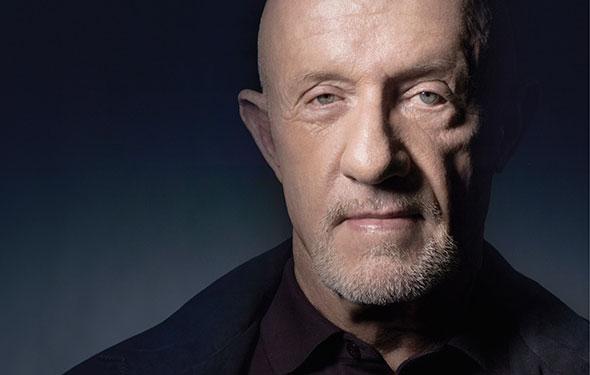
Mike Ehrmantraut, first introduced in Breaking Bad, is a “private investigator” who is more or less a hired gun and a former police officer. He first entered the criminal world when he took bribes as a cop in Philadelphia. A caring family man, he moved to Alburquerque after murdering two police officers who killed his son and would pick up odd jobs as a bodyguard for a while. However, he would soon get hired as a “security consultant” by Gustavo Fring, owner of fast food chain Los Pollos Hermanos, and, more importantly, an important figure in the cartel. Unlike many of the characters in the series, Mike is truly the only person who commits crimes for the sake of his loved ones, and also feels sympathy for others in his work. Despite him killing countless cartel members effortlessly and remorselessly, he spent an entire day searching for the disposed body of an innocent man who was killed by the cartel. He doesn’t do what he does for his own sake, he does it for the sake of his young granddaughter so that she can have a bright future, as she is the only thing that remains of his family. Mike is a very complex character with a unique moral code, as well as respectable professionalism.
Nacho Varga: The Man Who Lost Control of Fate

Nacho Varga is first introduced as a typical trashy cartel member who only seemed slightly more reasonable than his superiors. It is not known why he joined the cartel, however it is known that he cares much for his father who owns a small business, attempting to give him money that his father rejects due to its illegitimacy. However, it’s seen as the series progressed that he isn’t as stoic as he tries to make himself seem, perturbed by an innocent man being killed and letting a woman and child go when intimidating a rival organization. Moreover, he poisons even his boss when he tries to use his father’s business as a cartel front. However, Nacho truly starts to show his loss of control when he is blackmailed by Gustavo Fring and forced to be a spy for his own cartel family.
As he does more and more heinous actions under blackmail, he completely wants out of the game and tries to make his dad run. Everything would climax, though, when he sets up Lalo Salamanca to be killed, causing Nacho to be hunted for days in the desert by the Salamancas, as well as even Fring to be a scapegoat. He finally surrenders himself under the promise that his father would be safe, following Fring’s plot to pretend to be captured by Fring, kill a cartel officer, and then get shot and killed. However, in his final moments, instead of killing the officer and being Fring’s puppet, he shot himself, finally getting back even a little bit of the control he once had. Nacho is the best representation of a good man in the wrong business.
Howard Hamlin: The Consequence of Selfishness
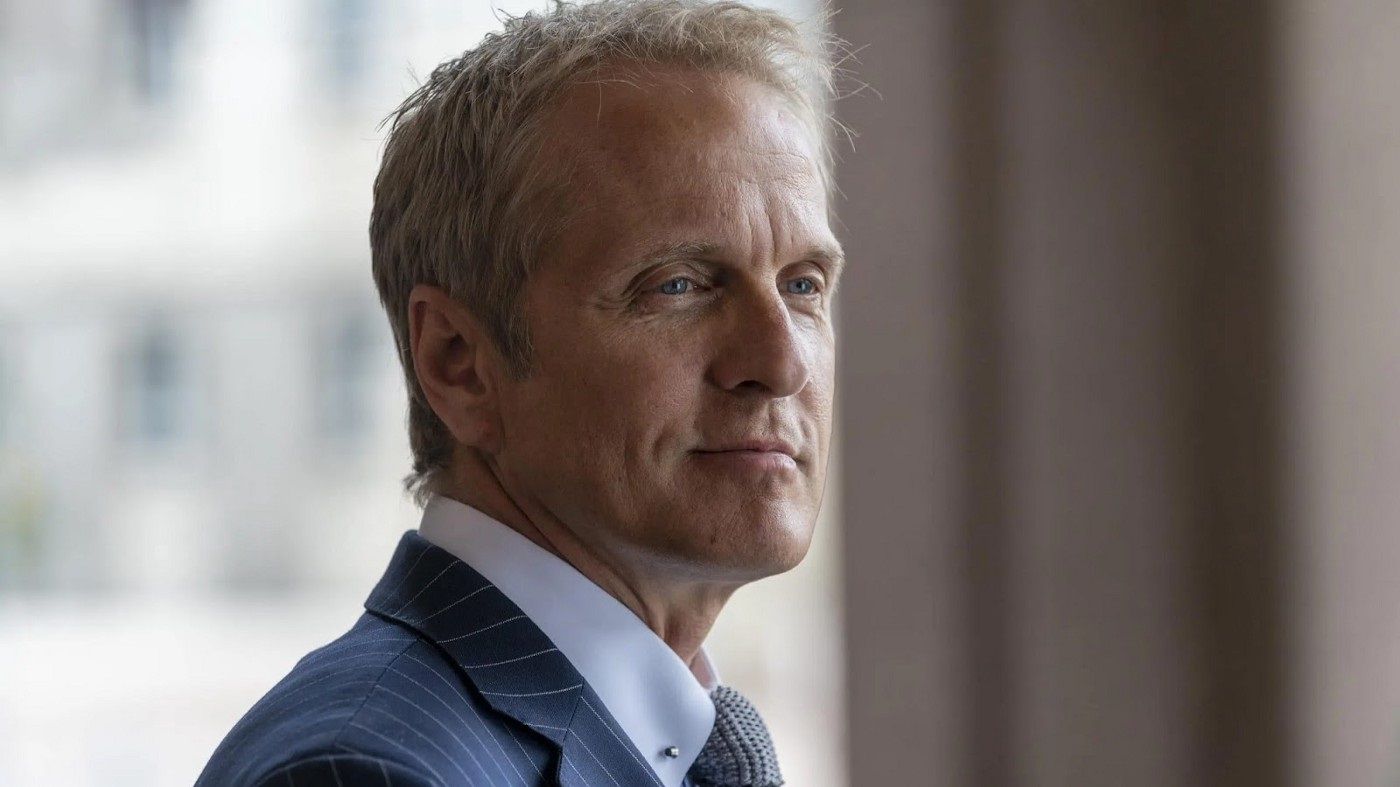
Howard is the other Co-owner of HHM with Chuck and is a simple charismatic, energetic attorney who wants the best for his clients and will let no nonsense stagger him. He is made out as sort of an unlikable person from the perspective of Jimmy, declining him a job at HHM several times (both of which were actually because of Chuck’s decision.) He often goes along with Chuck’s antics purely out of pity, which causes Jimmy to hold a grudge towards him. However, he is really only hated by Jimmy as a scapegoat and as a form or projection, as many of his confrontations with Jimmy were entirely Jimmy’s fault. Howard, in actuality, is just a stand up guy with a lot of responsibility which causes him to be the go-to source of people’s problems. Jimmy, with his wife, Kim, starts doing “pranks” on Howard, which I use very generously as it’s more framing him as a criminal. Planting baby powder to look like cocaine in his gym locker, stealing his car and framing him as a degenerate, and even swapping out photos that were evidence against Jimmy to make Howard look delusional. Viewers expected it to build up and that it would result in Howard committing suicide, but we were in for a surprise. Lalo walked in right when Howard was confronting Jimminy and Kim, and shot Howard right in the head. It would seem that Jimmy’s actions in the attorney world and the cartel world got Howard killed regardless. Howard demonstrates that all actions have consequences.
Lalo Salamanca: The Beauty of Insanity
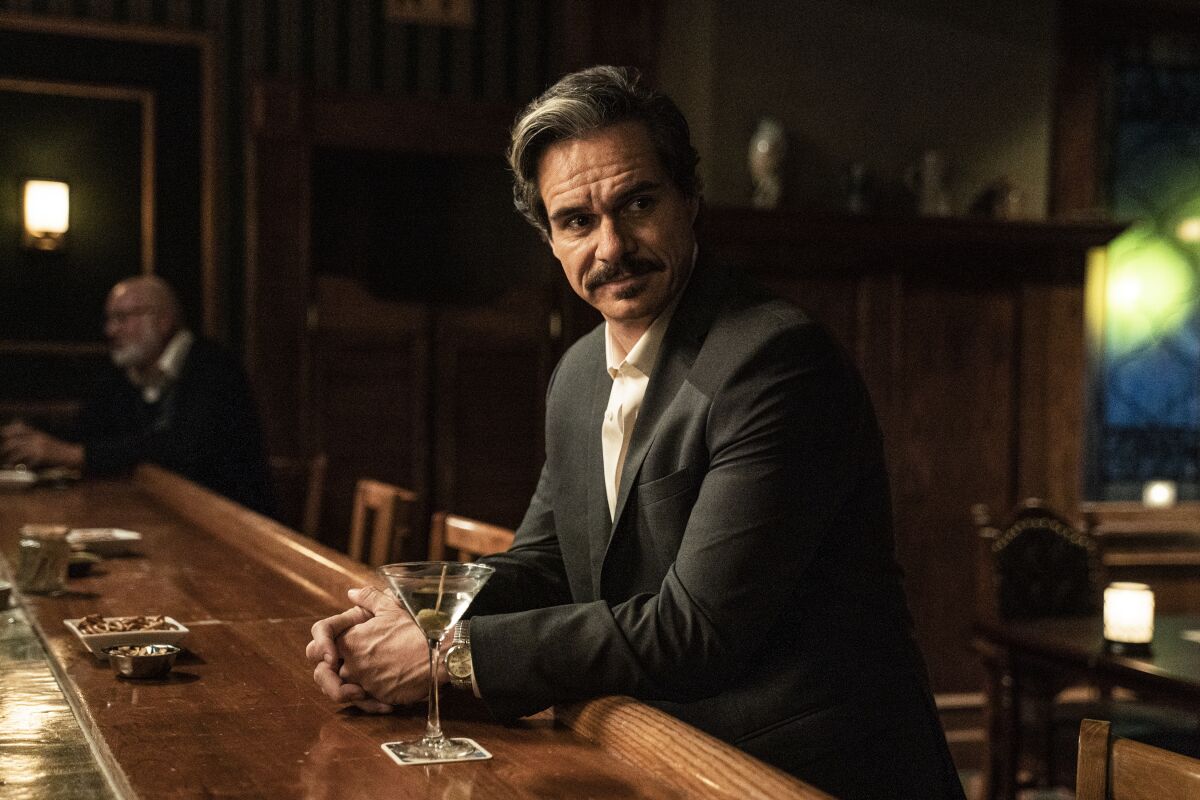
Lalo is my, as well as many others, favorite part of this series. Introduced fairly late in the show, he has no moral compass, killing innocent people as if it were as easy as breathing. Coming to Albuquerque from Mexico to maintain order in the Salamanaca family, He hires Jimmy McGill, mostly through intimidation, to defend him for murdering a man, establishing Jimmy’s most disgusting and cruel defense so far. He gets set up to be killed by Fring, which is where things spiral out of control. He kills so many people without remorse in his quest for vengeance, all with a smile on his face and the personality of a charmer. He is completely psychotic, donning only the face of a charming and enthusiastic man to get what he wants. He attempts to kill Jimmy for suspecting he had part in his assassination attempt, killing Howard which sets off Jimmy into going all in as Saul Goodman. Lalo is the pure chaos needed to create the absolute climax of the show, making every scene he’s in a spectacle. While lalo doesn’t have any development, there’s no need for him to. He serves as an obstacle and a plot device for the other characters to grow or deviate.
Kim Wexler: The Drowning Voice of Reason

Kim is really just a typical, hard-working woman who has spent their entire life on the straight and narrow. Dedicating her life to law practice, she surprisingly found a common wavelength with Jimmy. She disapproved of Jimmy’s underhanded methods fiercely, condemning them completely. However, she would become more and more impressed by Jimmy’s feats, even becoming attracted to his ability to get away with absurd actions, making her feel almost as though she were a little kid that could cut loose and mess around. Eventually, she would simply turn a blind eye on Jimmy’s petty tricks and ties to the cartel, even joining in on Jimmy’s “pranks” on Howard since she had a personal grudge towards him as well. When Howard got killed though, Kim was significantly more perturbed than Jimmy. She eventually divorced Jimmy, claiming that they both sparked the worst in each other, and she would eventually release an official confession to her and Jimmy’s part in Howard’s death: something that Jimmy was too far gone to hope to do. Indeed, Kim ended up being the complete opposite of Jimmy where she felt nothing but sorrow and horror by her actions, while Jimmy was too blind by the glare of fame and fortune to care. Kim shows that your self-destructive actions don’t only harm yourself, but also those you love. Conversely, she also represents how you shouldn’t indulge people’s bad habits, but instead help them before it’s too late.
The Necessary End To Better Call Saul
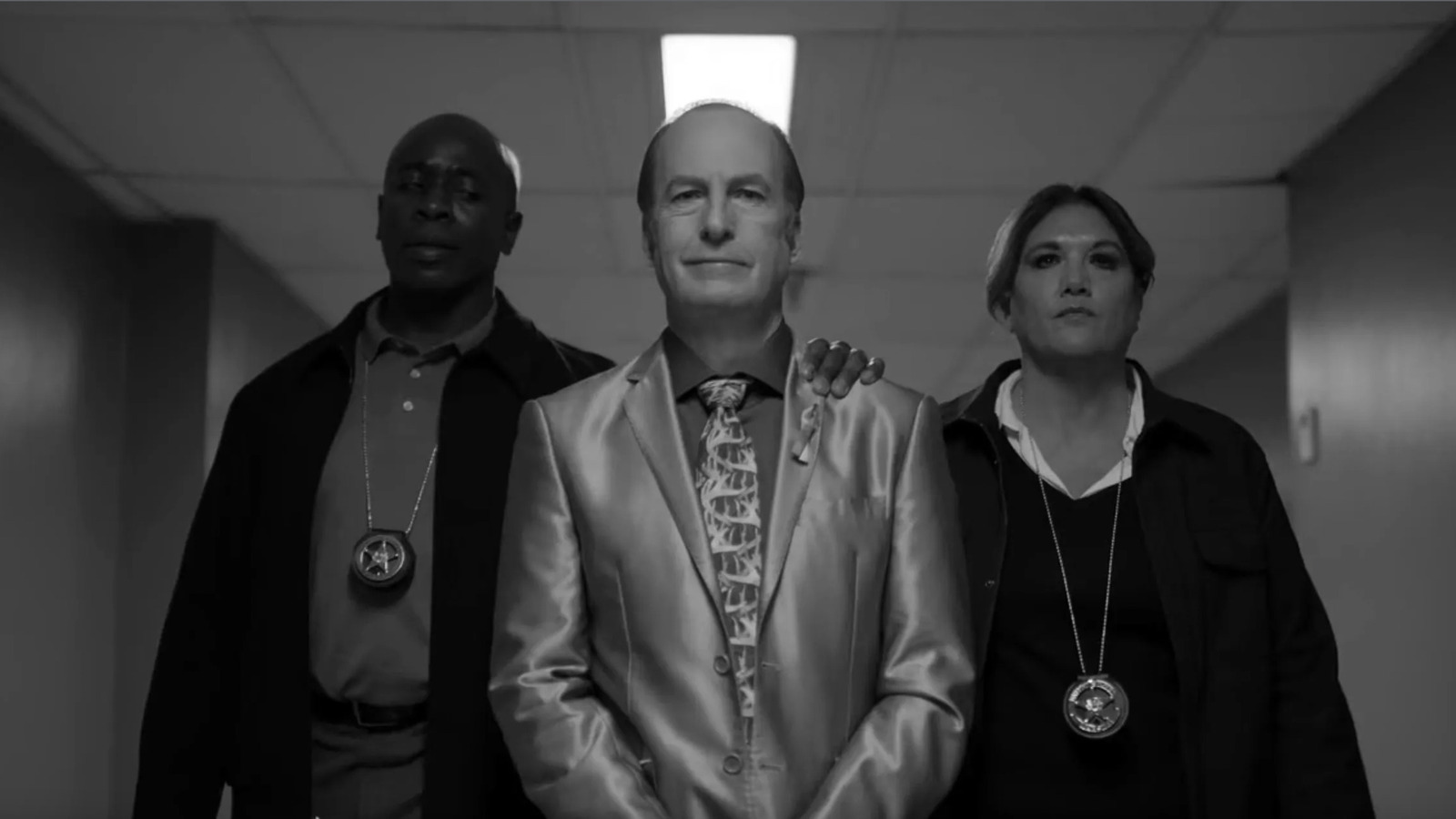
When Jimmy is hiding as Gene Takovic in his mundane life, he, for a moment, goes back to scams and thefts to try to recover even a glimmer of the glory of being Saul Goodman Again. He would eventually get caught, being charged for multiple life sentences for helping Walter White. The viewers expected Jimmy to go full Saul Goodman and simply talk his way out of his trouble, which seemed to be the case until Jimmy learned about Kim’s confession. Moved by the remorse and bravery of his former wife, Jimmy decides to confess everything at the stand and finally face all of his crimes. When sent to prison, he became beloved by all the inmates for his time as Saul Goodman. Finally, as an homage to the very beginning of the series. He shares a smoke with Kim, who finally forgives him for all of his actions.
This had to be the only way Better Call Saul could’ve ended. Saul escaped judgment for far too long, and he, without knowing, suffers for it. He lost everything: his wife, his home, his fame, his friends. As Gene, he sat watching VHS tapes of the glory days, wondering why things turned out this way. Perhaps it was because Jimmy McGill, the humble lawyer who loved his brother, got killed by the disgusting, egotistic monster, Saul Goodman. The only way that he could return to how things once were, when things were happy and with a clear conscience, he had to finally stop escaping repercussions: something he’s done his entire life. And that’s why, I believe Better Call Saul is a cinematic masterpiece that encapsulates breaking the curse of greed and owning up to one’s actions to achieve true happiness.
